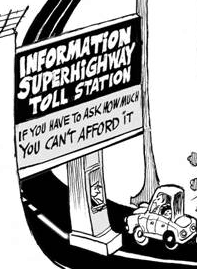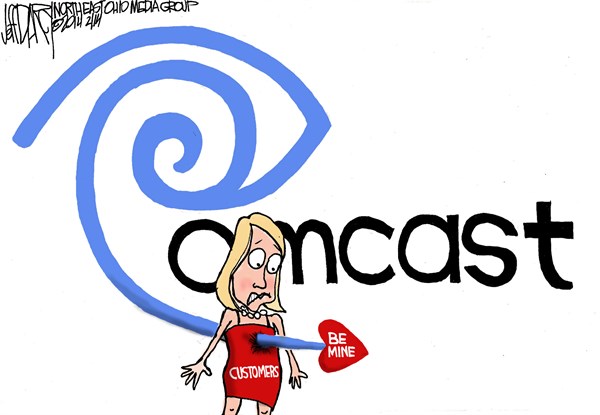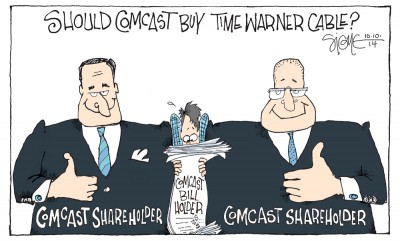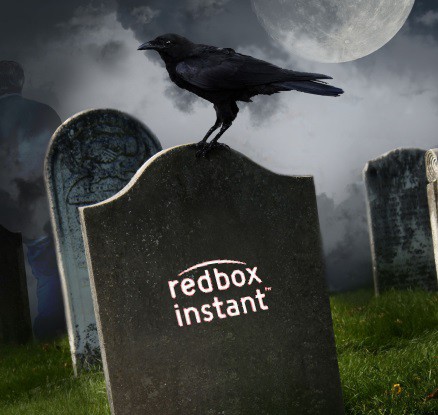 In a major victory for net roots groups, President Barack Obama today announced his support for the strongest possible Net Neutrality protections, asking the Federal Communications Commission to quickly reclassify broadband as a “telecommunications service” subject to oversight and consumer protection regulatory policies that would prohibit paid fast lanes, the blocking or degrading of websites for financial reasons, and more transparency in how Internet Service Providers handle traffic.
In a major victory for net roots groups, President Barack Obama today announced his support for the strongest possible Net Neutrality protections, asking the Federal Communications Commission to quickly reclassify broadband as a “telecommunications service” subject to oversight and consumer protection regulatory policies that would prohibit paid fast lanes, the blocking or degrading of websites for financial reasons, and more transparency in how Internet Service Providers handle traffic.
“For almost a century, our law has recognized that companies who connect you to the world have special obligations not to exploit the monopoly they enjoy over access in and out of your home or business,” said the president. “That is why a phone call from a customer of one phone company can reliably reach a customer of a different one, and why you will not be penalized solely for calling someone who is using another provider. It is common sense that the same philosophy should guide any service that is based on the transmission of information — whether a phone call, or a packet of data.”
“’Net neutrality’ has been built into the fabric of the Internet since its creation — but it is also a principle that we cannot take for granted,” President Obama added. “We cannot allow Internet Service Providers (ISPs) to restrict the best access or to pick winners and losers in the online marketplace for services and ideas. That is why today, I am asking the Federal Communications Commission (FCC) to answer the call of almost four million public comments, and implement the strongest possible rules to protect Net Neutrality.”
The president’s call will likely force FCC chairman Thomas Wheeler to abandon efforts to reclassify only certain types of Internet traffic under Title 2 regulations while leaving consumers vulnerable to paid fast lanes and other traffic monetizing schemes. Wheeler was rumored to be working on a limited Net Neutrality plan that would protect large online video content distributors like Netflix and Amazon from unfair compensation deals with ISPs. The plan would have given the FCC authority to review agreements between your Internet provider and some of the net’s biggest traffic generators.
President Obama’s statement goes beyond Wheeler’s tolerance for “individualized, differentiated arrangements” that could let cable and phone companies offer compensated “preferred partnership” deals with websites and applications, granting them special treatment or exemptions from speed throttles or usage caps not available to others.
The president’s four principles for a free and open Internet represent “common-sense steps that reflect the Internet you and I use every day, and that some ISPs already observe:”
 No blocking. If a consumer requests access to a website or service, and the content is legal, your ISP should not be permitted to block it. That way, every player — not just those commercially affiliated with an ISP — gets a fair shot at your business;
No blocking. If a consumer requests access to a website or service, and the content is legal, your ISP should not be permitted to block it. That way, every player — not just those commercially affiliated with an ISP — gets a fair shot at your business;- No throttling. Nor should ISPs be able to intentionally slow down some content or speed up others — through a process often called “throttling” — based on the type of service or your ISP’s preferences;
- Increased transparency. The connection between consumers and ISPs — the so-called “last mile” — is not the only place some sites might get special treatment. So, I am also asking the FCC to make full use of the transparency authorities the court recently upheld, and if necessary to apply net neutrality rules to points of interconnection between the ISP and the rest of the Internet;
- No paid prioritization. Simply put: No service should be stuck in a “slow lane” because it does not pay a fee. That kind of gatekeeping would undermine the level playing field essential to the Internet’s growth. So, as I have before, I am asking for an explicit ban on paid prioritization and any other restriction that has a similar effect.
The president also expressed a desire to see the same rules applied to mobile networks. That is a significant departure from the policies of the FCC under Wheeler’s predecessor Julius Genachowski, who served as chairman during the Obama Administration’s first term in office. His Net Neutrality policies exempted wireless carriers.
“The rules also have to reflect the way people use the Internet today, which increasingly means on a mobile device,” said the president. “I believe the FCC should make these rules fully applicable to mobile broadband as well, while recognizing the special challenges that come with managing wireless networks.”
[flv]http://www.phillipdampier.com/video/111014_NetNeutrality_Final.mp4[/flv]
President Barack Obama recorded this message supporting strong Net Neutrality protections for the Internet. (1:56)
Republicans in Congress and large telecommunications companies both immediately pounced on the president’s Net Neutrality plans.

Cruz
“Net Neutrality is Obamacare for the Internet,” tweeted Sen. Ted Cruz (R-Tex.) “The Internet should not operate at the speed of government.”
Cruz’s spokeswoman, Amanda Carpenter, added that Net Neutrality would place the government “in charge of determining pricing, terms of service, and what products can be delivered. Sound like Obamacare much?”
The National Cable and Telecommunications Association expressed surprise over the president’s strong public support for Net Neutrality action.
“We are stunned the President would abandon the longstanding, bipartisan policy of lightly regulating the Internet and call for extreme Title II regulation,” the NCTA wrote. “The cable industry strongly supports an open Internet, is building an open internet, and strongly believes that over-regulating the fastest growing technology in our history will not advance the cause of Internet freedom. There is no dispute about the propriety of transparency rules and bans on discrimination and blocking. But this tectonic shift in national policy, should it be adopted, would create devastating results.”
“Heavily regulating the Internet will lead to slower Internet growth, higher prices for consumers, and the threat of excessive intervention by the government in the working of the Internet,” stated the NCTA release. “This will also have severe and profound implications internationally, as the United States loses the high ground in arguing against greater control of the Internet by foreign governments. There is no substantive justification for this overreach, and no acknowledgment that it is unlawful to prohibit paid prioritization under Title II. We will fight vigorously against efforts to impose this backwards policy.”


 Subscribe
Subscribe Time Warner Cable today recommitted itself to providing unlimited broadband service to any customer that wants it, promising customers they won’t be forced into a tiered usage plan as long as Time Warner Cable remains an independent company.
Time Warner Cable today recommitted itself to providing unlimited broadband service to any customer that wants it, promising customers they won’t be forced into a tiered usage plan as long as Time Warner Cable remains an independent company.
 YouTube will earn as much as $6 billion this year from the increasing number of ads that accompany videos on the world’s busiest website. It could earn even more charging consumers a subscription fee to get rid of them.
YouTube will earn as much as $6 billion this year from the increasing number of ads that accompany videos on the world’s busiest website. It could earn even more charging consumers a subscription fee to get rid of them. Wall Street is increasingly pessimistic about Comcast and Time Warner Cable pulling off their merger deal as regulators stop the clock to take a closer look at the transaction.
Wall Street is increasingly pessimistic about Comcast and Time Warner Cable pulling off their merger deal as regulators stop the clock to take a closer look at the transaction. Despite a blizzard of Comcast talking points claiming the cable industry is fiercely competitive, Capitol Forum’s report indicates the DOJ staff level believes the cable industry suffers dearly from a lack of competition already, and allowing further marketplace concentration would exacerbate an already difficult problem.
Despite a blizzard of Comcast talking points claiming the cable industry is fiercely competitive, Capitol Forum’s report indicates the DOJ staff level believes the cable industry suffers dearly from a lack of competition already, and allowing further marketplace concentration would exacerbate an already difficult problem. The FCC will review the transaction pursuant to Sections 214 and 310(d) of the Communications Act of 1934, in order to ensure that “public interest, convenience, and necessity will be served thereby.”
The FCC will review the transaction pursuant to Sections 214 and 310(d) of the Communications Act of 1934, in order to ensure that “public interest, convenience, and necessity will be served thereby.” Here the examples of potential abuse are plentiful:
Here the examples of potential abuse are plentiful:
